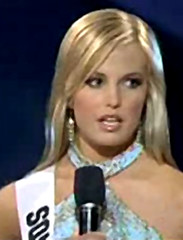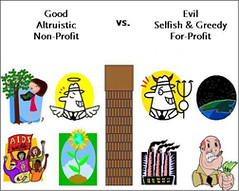Advertising for the Pfizer cholesterol drug Lipitor continues to draw scrutiny from everyone, especially one of its more recent advertisements. The ad features Dr. Robert Jarvick, inventor of the artificial heart, rowing his way to better health with Lipitor. Except, he doesn’t really row.
"He's about as much an outdoorsman as Woody Allen," longtime collaborator Dr. O. H. Frazier of the Texas Heart Institute told The New York Times. "He can't row."
The Pfizer advertising campaign came under question about a month ago after the U.S. House of Representatives Committee on Energy and Commerce sent a letter of inquiry about the endorsement. The letter didn’t target Jarvick’s rowing as much as it did his qualifications.
The bigger picture is Congress taking an active interest in pharmaceutical advertising since 2004. Advertising drove record sales of Vioxx, just before it was later pulled by Merck after a clinical trial showed that it sharply increased the risk of heart attacks and stroke. In other words, for better or worse, pharmaceutical advertising works. Congress is trying to figure out how much is for worse.
The criticism of the Jarvik campaign raises several interesting questions related to celebrity and creative ethics in a world where Andy Warhol’s quote "In the future everybody will be world famous for fifteen minutes” has morphed into “in the future everybody will be famous to fifteen people at a time,” even journalists.
Although Jarvick insists he is not a celebrity in a statement issued to fend off reporter inquiries about the campaign, he really is, even if it is only of a quasi-celebrity nature.
Endorsing products, paid or unpaid, even if it is under the auspices of having “the training, experience, and medical knowledge to understand the conclusions of the extensive clinical trials that have been conducted to study the safety and effectiveness of Lipitor,” does thrust one into spokesperson-celebrity arena.
If he didn’t have celebrity status to some degree, it seems unlikely Pfizer would have approached him. After all, Jarvick might hold a medical degree, but not as a cardiologist. He also does not hold a license to practice any type of medicine.
From celebrity endorsers, the public generally wants some authenticity if not transparency. Sure, while we’re all used to seeing celebrities promote one product while using another on the side, most cameos are grounded in some semblance of reality. So when celebrities push the envelope on creative license, expressing their passion for a sport they do not engage in (let’s say), there is bound to be backlash that exceeds the obvious body double work.
Endorsement advertising, even by consumers, is all the rage these days. But that doesn’t mean I always get it. Sure, it’s fun to watch Chuck Norris endorse Mike Huckabee on YouTube or any number of social media experts tout “on again, off again” social network promotions, but one wonders if we aren’t stretching the “pile in the party bus with >insert quasi-celebrity<” too often.
Is a Norris endorsement all that’s needed to pick the President of the United States? Does Jarvick trump any advice that your cardiologist might provide? Does a social network that an A-list blogger employs mean it will work for you?
The truth is they seem to matter in perception if not reality. But perception is the operative word. Sooner or later, people wonder what is real. Is the footage real? How about Pfizer’s statement to The Wall Street Journal?
“Dr. Jarvik is a respected health care professional and heart expert. Dr. Jarvik, inventor of the Jarvik artificial heart, knows how imperative it is for patients to do everything they can to keep their heart working well.”
No doubt. Except, I don’t think the ad was a public service announcement.

"He's about as much an outdoorsman as Woody Allen," longtime collaborator Dr. O. H. Frazier of the Texas Heart Institute told The New York Times. "He can't row."
The Pfizer advertising campaign came under question about a month ago after the U.S. House of Representatives Committee on Energy and Commerce sent a letter of inquiry about the endorsement. The letter didn’t target Jarvick’s rowing as much as it did his qualifications.
The bigger picture is Congress taking an active interest in pharmaceutical advertising since 2004. Advertising drove record sales of Vioxx, just before it was later pulled by Merck after a clinical trial showed that it sharply increased the risk of heart attacks and stroke. In other words, for better or worse, pharmaceutical advertising works. Congress is trying to figure out how much is for worse.
The criticism of the Jarvik campaign raises several interesting questions related to celebrity and creative ethics in a world where Andy Warhol’s quote "In the future everybody will be world famous for fifteen minutes” has morphed into “in the future everybody will be famous to fifteen people at a time,” even journalists.
Although Jarvick insists he is not a celebrity in a statement issued to fend off reporter inquiries about the campaign, he really is, even if it is only of a quasi-celebrity nature.
Endorsing products, paid or unpaid, even if it is under the auspices of having “the training, experience, and medical knowledge to understand the conclusions of the extensive clinical trials that have been conducted to study the safety and effectiveness of Lipitor,” does thrust one into spokesperson-celebrity arena.
If he didn’t have celebrity status to some degree, it seems unlikely Pfizer would have approached him. After all, Jarvick might hold a medical degree, but not as a cardiologist. He also does not hold a license to practice any type of medicine.
From celebrity endorsers, the public generally wants some authenticity if not transparency. Sure, while we’re all used to seeing celebrities promote one product while using another on the side, most cameos are grounded in some semblance of reality. So when celebrities push the envelope on creative license, expressing their passion for a sport they do not engage in (let’s say), there is bound to be backlash that exceeds the obvious body double work.
Endorsement advertising, even by consumers, is all the rage these days. But that doesn’t mean I always get it. Sure, it’s fun to watch Chuck Norris endorse Mike Huckabee on YouTube or any number of social media experts tout “on again, off again” social network promotions, but one wonders if we aren’t stretching the “pile in the party bus with >insert quasi-celebrity<” too often.
Is a Norris endorsement all that’s needed to pick the President of the United States? Does Jarvick trump any advice that your cardiologist might provide? Does a social network that an A-list blogger employs mean it will work for you?
The truth is they seem to matter in perception if not reality. But perception is the operative word. Sooner or later, people wonder what is real. Is the footage real? How about Pfizer’s statement to The Wall Street Journal?
“Dr. Jarvik is a respected health care professional and heart expert. Dr. Jarvik, inventor of the Jarvik artificial heart, knows how imperative it is for patients to do everything they can to keep their heart working well.”
No doubt. Except, I don’t think the ad was a public service announcement.





























